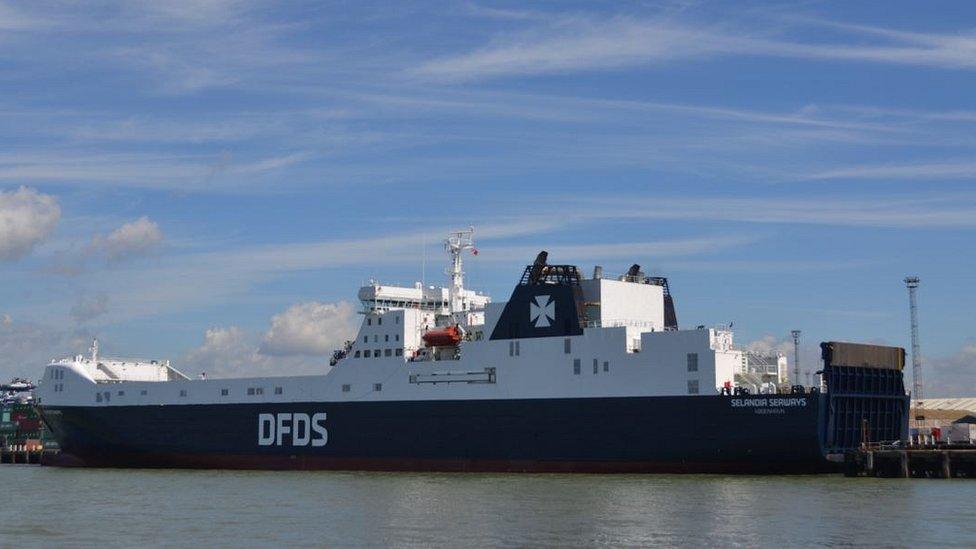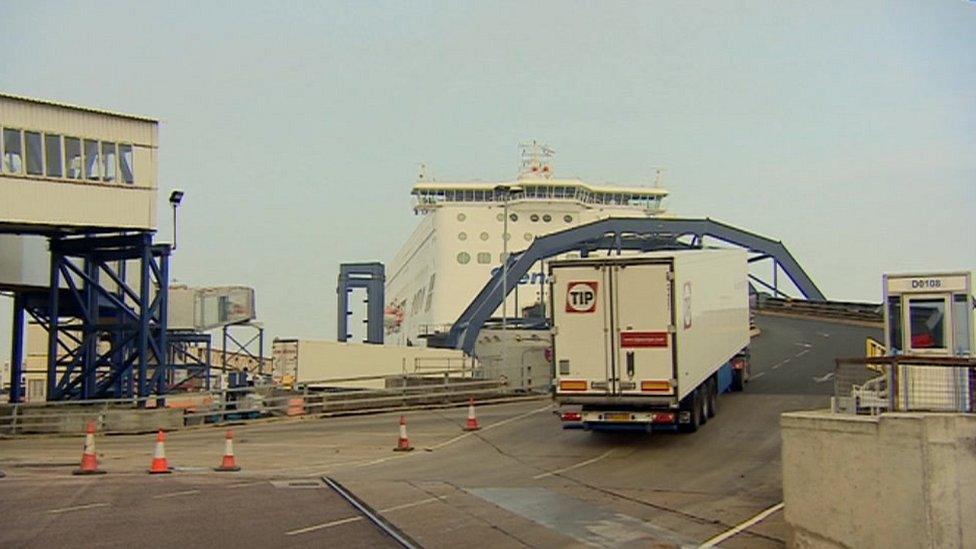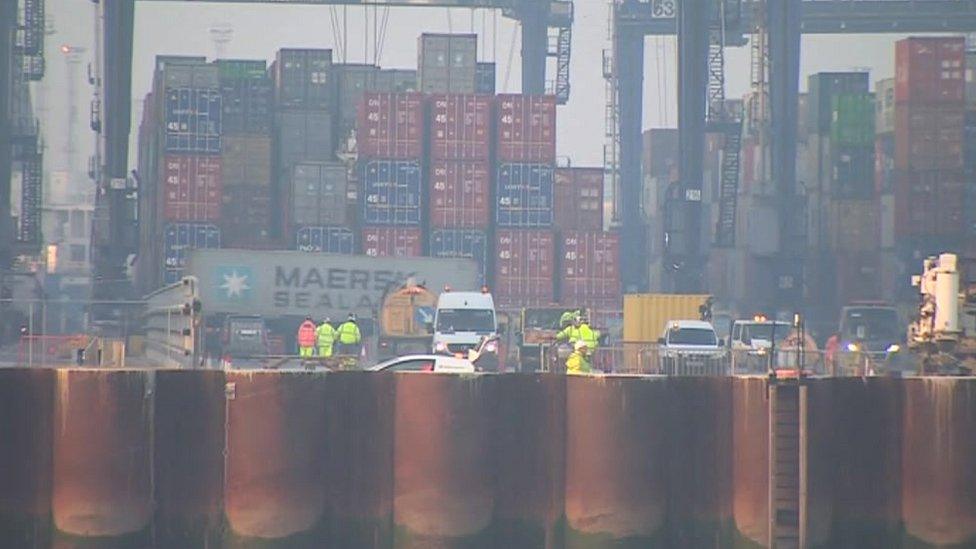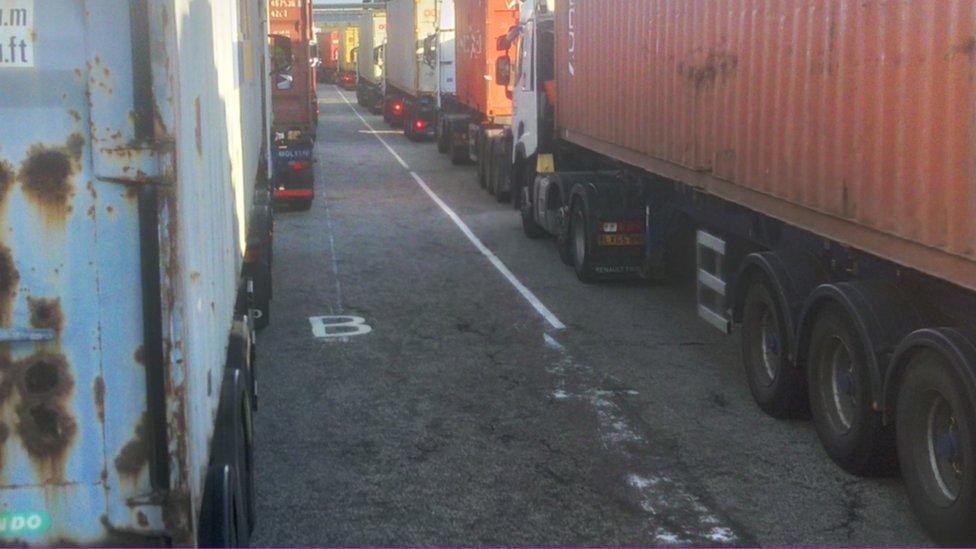Felixstowe Port boosts capacity ready for Brexit
- Published

The Port of Felixstowe and ferry operator DFDS have agreed to increase capacity at the port by more than 40%
A UK port and Danish ferry operator DFDS have agreed to increase roll-on, roll-off, capacity by more than 40% to help freight shipping after Brexit.
Felixstowe Port's chief executive, Clemence Cheng, said the deal with DFDS comes as "shippers seek to minimise risks to their supply chains resulting from Brexit."
One freight transporter said the expansion could help ease bottlenecks.
New bridges, tractor units and trailer parking facilities will also be built.
The investment comes as suppliers on both sides of the Channel look for alternatives to Dover once the UK leaves the European Union in March.
"Demand on DFDS' service to Rotterdam has been growing steadily for a number of years and we are delighted to have agreed a new contract with them to secure the service at Felixstowe for another 15 years," added Mr Cheng.

New infrastructure is planned for Felixstowe so that it can cope with the increased number of ferries
"Dover is a port where the cargo tends to be accompanied by the driver so if there are delays, you get bottlenecks," Tim Wray of Multimodal Logistics said.
"Felixstowe is primarily an unaccompanied port where cargo arrives without a lorry, is taken from the boat to the port and on to a holding area. A vehicle then applies for the cargo and takes it away."

Roll-on, roll-off freight shipping makes up 10% of the port's traffic
Hutchison Ports added it was seeing "increasing interest in both roll-on, roll-off and short sea container connections" at all three of its UK ports, which include Harwich and London Thamesport.
Niels Smedegaard, president of DFDS, said the contract was "striving to provide necessary capacity to continue... even in a possible post-Brexit world."
- Published14 June 2018
